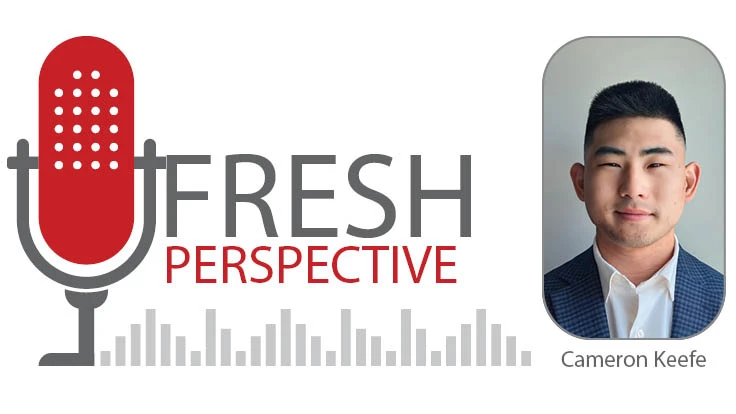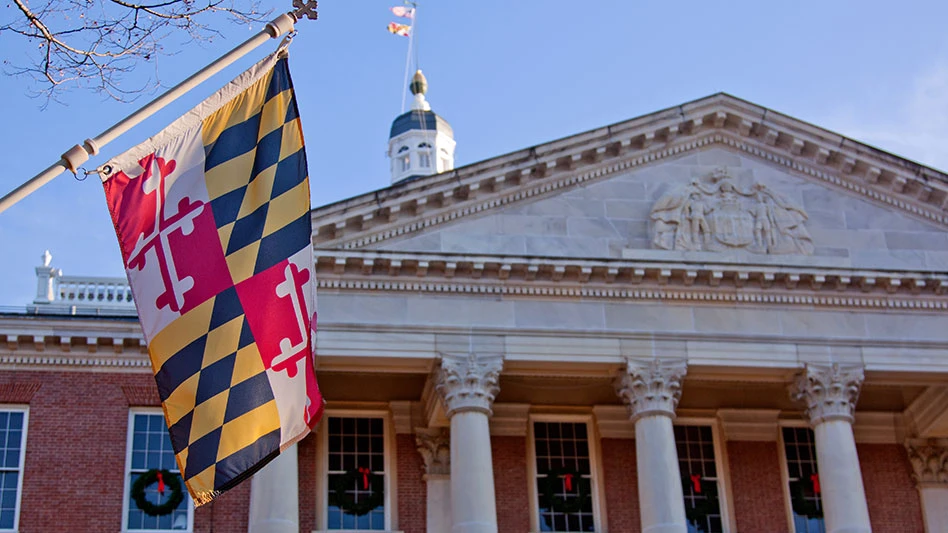

Mark Ceresa
District general manager at Waste Connections
Mark Ceresa might still be in his 30s, but he has a passion for developing the next generation of workers in the recycling and waste industry. Much of his zeal for this comes from the fact that many people in the industry invested in him early in his career.
“I believe it is very important to keep very close contact with young leaders in order to develop them properly,” he says. “For me this entails daily conversations and weekly one-on-one meetings. This helps my team and I to gauge how they are progressing, if they are struggling with anything or just have any questions. These daily ‘touches’ also give us great insight into ways to customize the way we are developing them by exploring their strengths and weaknesses, what they need challenged with and giving them feedback and coaching.”
Ceresa began working in the industry about seven years ago when he joined Waste Connections, which is headquartered in Toronto. Today, he serves as a district manager with the company, overseeing hauling and transfer station operations in Clifton Park, New York.
Recycling Today connected with him to learn about what got him into the industry and what he sees as concerns and opportunities in recycling.
Recycling Today (RT): What are some of the successes you’ve had in your career with Waste Connections?
Mark Ceresa (MC): I would consider my biggest successes I’ve had are with the younger leaders I’ve been able to have a hand in developing. I see this as basically paying it forward for the opportunity given to me by the region team in Denver, and I think the best success I can have is leaving a legacy of mentoring young leaders. I was honored to have a couple of very good young leaders when I was in Wichita, Kansas, a few years ago. Two of them have moved on to be very good district managers within Waste Connections.
RT: There have been a lot of changes and concerns in recycling. What is the biggest issue impacting the industry today and why?
MC: The first big issue I see is people, both in terms of labor and leadership.
In terms of labor, the lack of available labor and the tightening of the labor market is going to be a tremendous headwind for our industry, both on the collection and post- collection sides for the foreseeable future. We’re also seeing fewer and fewer young people coming into the industry with the will and skill set to manage and lead in this business.
The other major issue I see is the huge divide between the perception of recycling by the general public and the reality of recycling. In my opinion, this divide has caused the contamination issues we’re facing and the pricing issues we’re facing in the current business environment.
I would really like to see a wide base re-education of the recycling customer in terms of what’s actually recyclable in the single-stream environment in order to reduce contamination and the actual cost of what it takes to recycle.
RT: What do you enjoy most about working in recycling and how can companies successfully recruit new professionals to the industry?
MC: I personally love almost every aspect to this business. It’s been a great fit for me both from a business perspective and the people aspect of it.
I believe it’s incumbent upon all of us in the industry to be our own best recruiter. We have to start looking for talent in unlikely areas and other industries to try to pull them into this sector.
Get curated news on YOUR industry.
Enter your email to receive our newsletters.

Explore the February 2019 Issue
Check out more from this issue and find your next story to read.
Latest from Recycling Today
- Plastics Recycling Conference 2025: Working toward their targets
- SWACO rolls out new commercial recycling and food waste programming
- Updated: Matalco to close Canton, Ohio, plant
- Metso launches electric Anode Weighing and Casting Machine
- Circular by Shapiro releases '5 for Five' sustainability series
- Graphic Packaging set to close Ohio CRB facility
- Ameripen voices support for Maryland EPR bill
- Maryland county expands curbside recycling to include electronics






